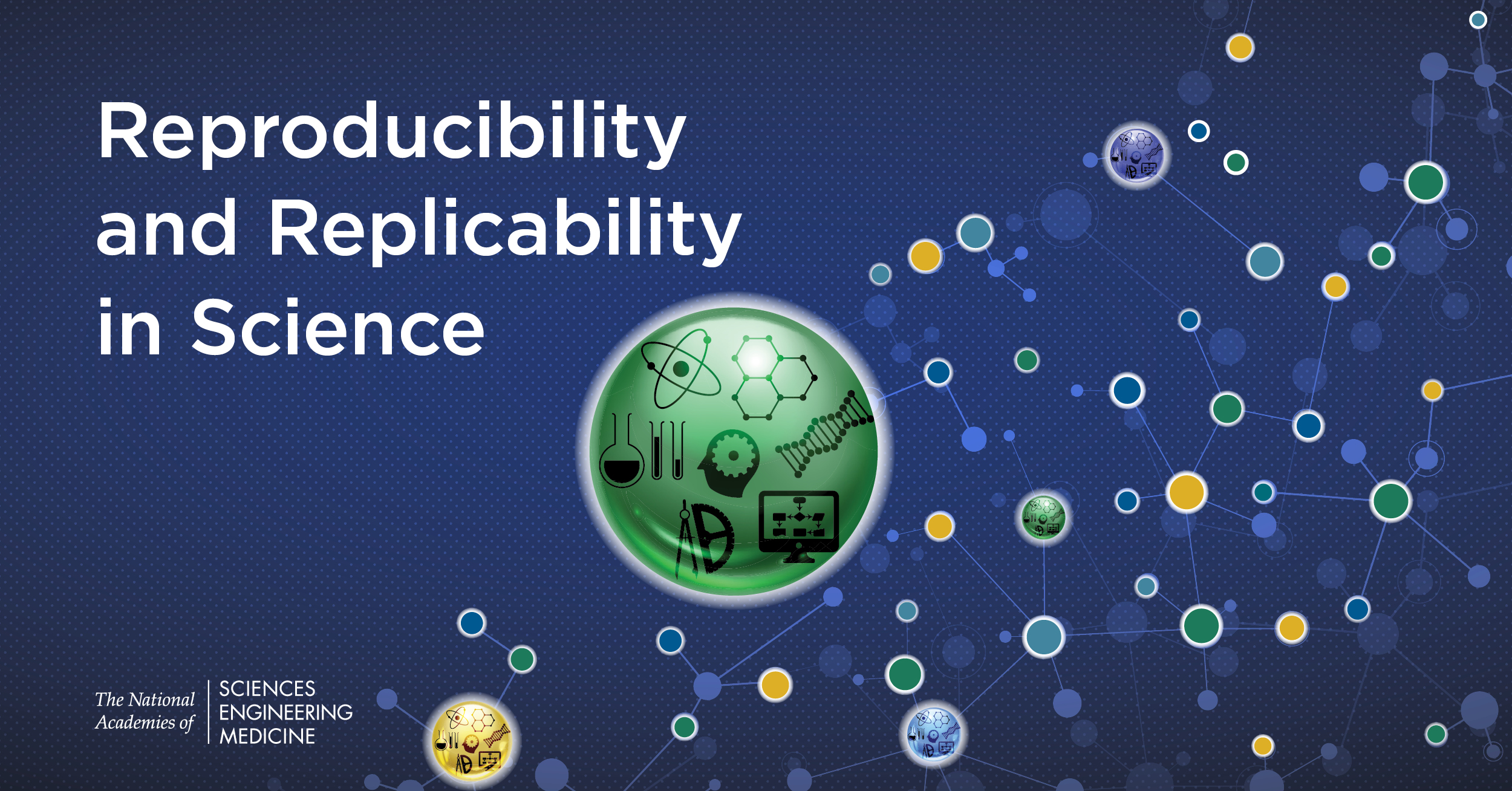
The urgency of finding solutions to challenges arising from the COVID-19 pandemic has led to a greatly accelerated pace of scientific research. As the volume and speed of scientific publishing have increased, openness and transparency are key to producing reliable and trusted science. Transparency about methods, data, computer code, and other aspects of research is crucial to efforts to produce results that can be reproduced and/or replicated. Our titles discuss reproducibility and replicability, open sharing of data, and fostering integrity in the scientific enterprise. All are free to download.

Reproducibility and Replicability in Science
One of the pathways by which the scientific community confirms the validity of a new scientific discovery is by repeating the research that produced it. When a scientific effort fails to independently confirm the computations or results of a previous study, some fear that it may be a symptom of …[more]

Methods to Foster Transparency and Reproducibility of Federal Statistics: Proceedings of a Workshop
In 2014 the National Science Foundation (NSF) provided support to the National Academies of Sciences, Engineering, and Medicine for a series of Forums on Open Science in response to a government-wide directive to support increased public access to the results of research funded by the federal …[more]

Open Science by Design: Realizing a Vision for 21st Century Research
Openness and sharing of information are fundamental to the progress of science and to the effective functioning of the research enterprise. The advent of scientific journals in the 17th century helped power the Scientific Revolution by allowing researchers to communicate across time and space, …[more]

Sharing knowledge is what drives scientific progress – each new advance or innovation in biomedical research builds on previous observations. However, for experimental findings to be broadly accepted as credible by the scientific community, they must be verified by other researchers. An …[more]

Fostering Integrity in Research
The integrity of knowledge that emerges from research is based on individual and collective adherence to core values of objectivity, honesty, openness, fairness, accountability, and stewardship. Integrity in science means that the organizations in which research is conducted encourage those …[more]

Sharing Clinical Trial Data: Maximizing Benefits, Minimizing Risk
Data sharing can accelerate new discoveries by avoiding duplicative trials, stimulating new ideas for research, and enabling the maximal scientific knowledge and benefits to be gained from the efforts of clinical trial participants and investigators. At the same time, sharing clinical trial data …[more]

Sharing Clinical Research Data: Workshop Summary
Pharmaceutical companies, academic researchers, and government agencies such as the Food and Drug Administration and the National Institutes of Health all possess large quantities of clinical research data. If these data were shared more widely within and across sectors, the resulting research …[more]

Questions about the reproducibility of scientific research have been raised in numerous settings and have gained visibility through several high-profile journal and popular press articles. Quantitative issues contributing to reproducibility challenges have been considered (including improper …[more]

Ensuring the Integrity, Accessibility, and Stewardship of Research Data in the Digital Age
As digital technologies are expanding the power and reach of research, they are also raising complex issues. These include complications in ensuring the validity of research data; standards that do not keep pace with the high rate of innovation; restrictions on data sharing that reduce the …[more]

